News
New Chief Secretaries for Eastern and North Central Provinces
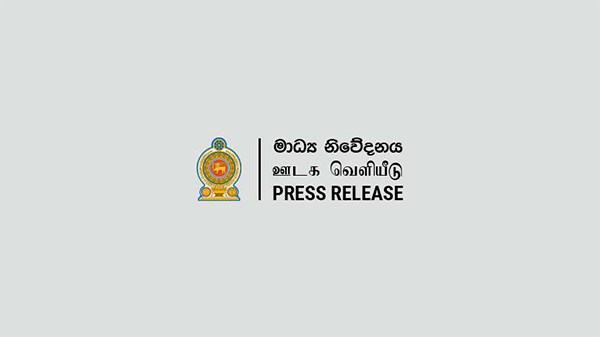
President Anura Kumara Disanayake has appointed new Chief Secretaries for the Eastern and North Central Provinces.
Accordingly, T.A.C.N. Thalangama has been appointed as the Chief Secretary of the Eastern Province, while J.M. Jayasinghe has been appointed as the Chief Secretary of the North Central Province.
The official appointment letters were presented to them by the Secretary to the President Dr. Nandika Sanath Kumanayake on Friday (31) at the Presidential Secretariat.
Prior to this appointment, T.A.C.N. Thalangama served as an Additional Secretary at the Ministry of Fisheries, while J.M. Jayasinghe held the position of District Secretary for Kegalle.
Latest News
Land belonging to the people should rightfully remain with them – President at the Jaffna DCC Meeting
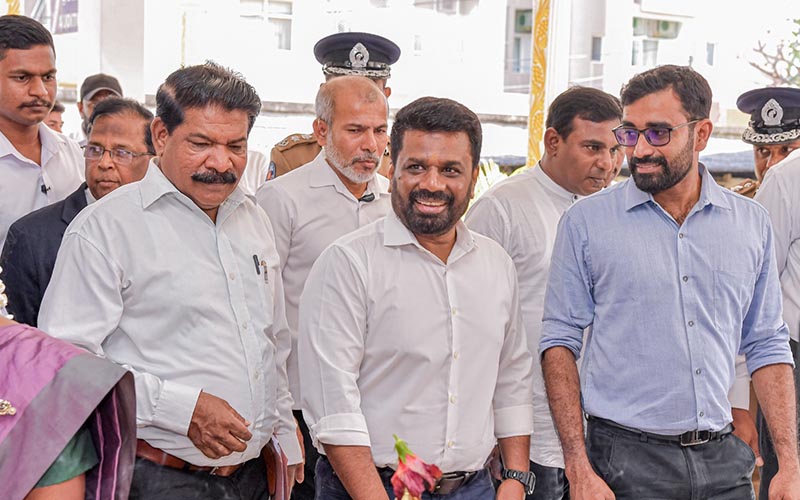
President Anura Kumara Disanayake stated that land belonging to the people should rightfully remain with them. He further emphasized that the issue of land disputes in the Northern Province is under review and that steps are being taken to expedite the process of returning land to its rightful owners.
The President highlighted that while the government has the authority to acquire land anywhere in the country for development projects or security purposes, it is imperative that alternative land is provided to those affected.
President Disanayake made these remarks during the Jaffna District Coordination Committee (DCC) Meeting held on Friday (31) at the Jaffna District Secretariat.
He also stressed that the Jaffna President’s House will be fully repurposed for a project of greater significance to the people of the region. He urged officials to submit suitable proposals for this initiative.
The President instructed officials to investigate and take swift action regarding reports that families displaced by the war are still residing in the Northern Province.
He also noted that a committee, led by the Secretary to the Prime Minister, has identified approximately 30,000 vacancies in state institutions. He assured that these vacancies would be filled in accordance with the established recruitment process, ensuring opportunities for university graduates as well.
Additionally, the President announced that Tamil-speaking youth will be given greater opportunities to apply for vacancies in the Police Department and encouraged them to come forward for recruitment.
The government has also planned to implement a comprehensive strategy to strengthen the transportation system in the Northern Province. This includes launching a joint bus operation project between the Sri Lanka Transport Board (SLTB) and private bus operators. Furthermore, attention has been directed toward increasing the frequency of train services in the region.
The President stated that three new industrial zones will be established in Paranthan, Mankulam, and Kankesanthurai to improve the living standards of the people in the Northern Province. He also extended an invitation to Sri Lankans who left the country due to the war to invest in these projects.
The government is prioritizing the Northern Province in its development plans, ensuring targeted initiatives for the region, the President emphasized.
He further revealed that with an estimated 2.5 million tourists expected to visit Sri Lanka next year, the government will identify and promote new tourist attractions in the Northern Province to boost tourism in the region.
Additionally, the President assured that new recruitments for the state sector in the Northern Province will be carried out without political interference, while efforts will be made to further strengthen public service in the region.
President Anura Kumara Disanayake stated that the government would engage in maximum diplomatic intervention to resolve the fisheries-related issues affecting the region.
Additionally, he highlighted that the Northern Province has been identified as the region with the lowest consumption of piped drinking water in the country. In response, he emphasized the need to accelerate the on-going water supply projects in the area. Furthermore, he announced that funds have been allocated in the upcoming budget for the implementation of new water supply projects to improve access to clean drinking water in the province.
President Anura Kumara Disanayake acknowledged the numerous challenges faced by the people in the Northern Province and emphasized the government’s commitment to strengthening the education, healthcare, transportation and agricultural sectors, along with the overall public service in the region. He further stated that both political authority and state mechanisms must work together to uplift the living standards of the people.
The Jaffna District Coordinating Committee meeting was attended by several key figures, including Minister of Fisheries, Aquatic and Ocean Resources, and Chairman of the Jaffna District Coordinating Committee Ramalijngam Chandrasekar, Minister of Transport, Highways, Ports, and Civil Aviation Bimal Rathnayake, Members of Parliament (NPP), Ilankumaran Karunanandan, Dr. Saravanabhavanandan Shanmuganathan, Rajivan Jayachandramurthy, Ramanathan Archuna, Member of Parliament (ITAK) Sivagnanam Sridharan, Member of Parliament (AITC) Gajendrakumar Ponnambalam, Governor of the Northern Province Nagalingam Vedanayagam, Chief Secretary of the Northern Province L. Ilangovan, Jaffna District Secretary M. Pradeepan, Acting Inspector General of Police Priyantha Weerasooriya and Senior military officials overseeing the Northern region, along with other government officials.
[PMD]
News
Mavai Senathirajah, a political leader who dedicated his life to the service of the people – Prime Minister
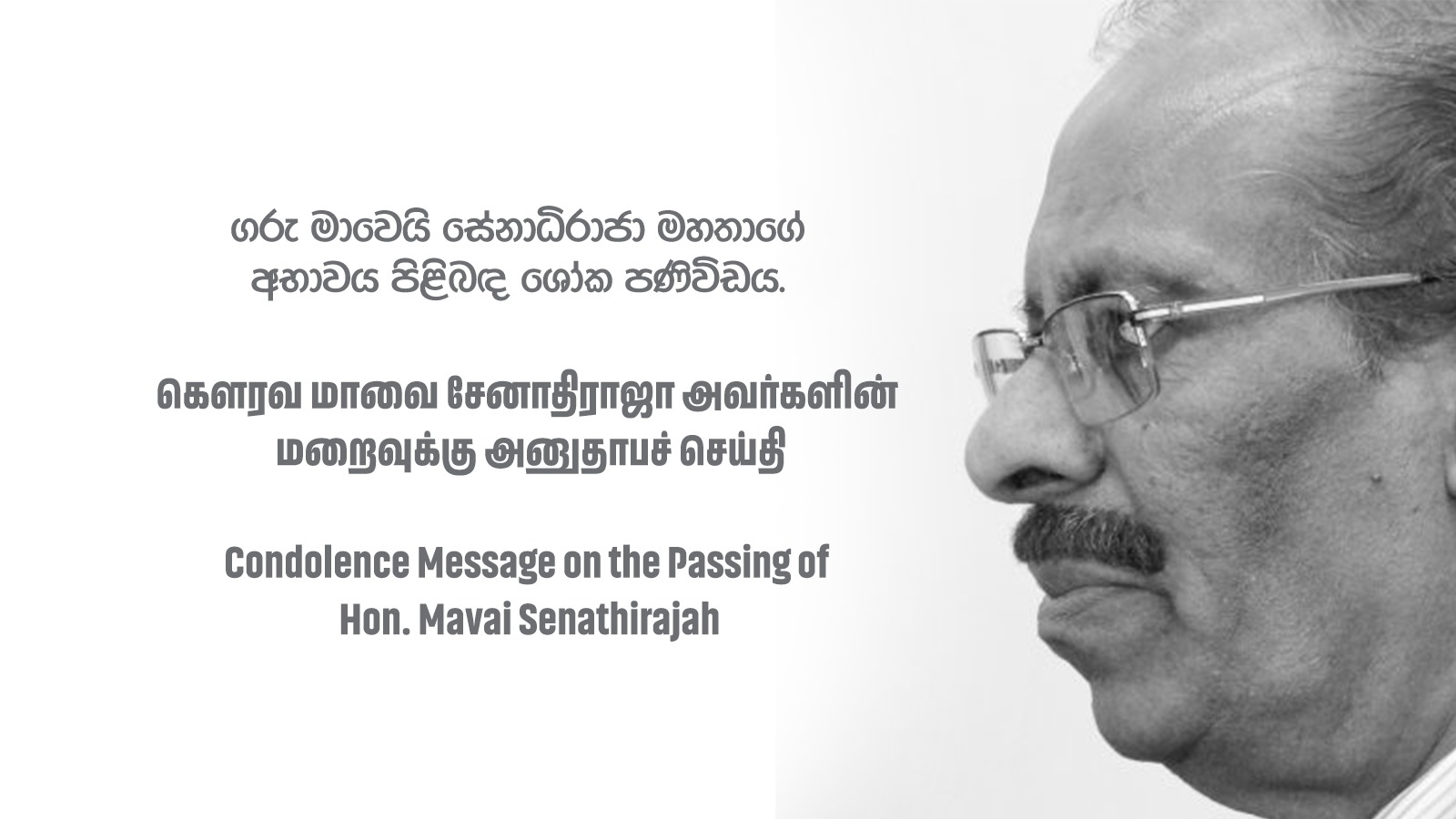
Prime Minister Dr Harini Amarasuriya in her message of condolence on the passing away of Mavai Senathirajah, the leader of the Ilankai Tamil Arasu Kachchi (ITAK) and former Jaffna district Member of Parliament said that he was a political leader who dedicated his life to the service of the people.
The full text of the Prime Minister’s condolence message:
“I am deeply saddened by the passing of a veteran political leader who dedicated his life to the service of the people. His unwavering commitment to upholding the rights of the Tamil community has left an enduring legacy in Sri Lanka’s political history.
As a leader of the and a key figure in the Tamil National Alliance (TNA), Hon. Senathirajah played a pivotal role in advocating for the rights and aspirations of his people while striving for unity and reconciliation. His decades-long service in Parliament reflected his dedication to the democratic process and his deep-rooted belief in peaceful political engagement.
His passing is a great loss to all who knew and worked with him and I extend my heartfelt condolences to his family, colleagues, and all those who mourn him. May his legacy continue to inspire future generations in their pursuit of justice and equality.”
News
HRCSL recommends improved treatment of detained Rohingya asylum seekers
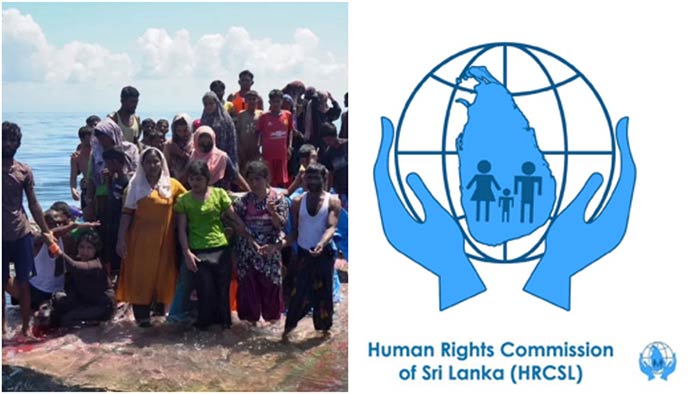
The Human Rights Commission of Sri Lanka (HRCSL), on Friday (31), called for urgent measures to address the conditions of 116 Rohingya asylum seekers, including 57 children, currently detained at the Mullaitivu Air Force Camp. The group arrived on 19 December, 2024, after a multi-day journey on a trawler that drifted towards the coast near Mullivaikkal. Several asylum seekers had perished during the journey before local fishermen provided humanitarian aid and the Sri Lanka Navy escorted the vessel to Trincomalee. The survivors were later detained following an order by the Trincomalee Magistrate.
Following a visit to the Mullaitivu Air Force Camp on 9 January 2025, the HRCSL issued a report highlighting legal obligations, under both domestic and international law, to protect the asylum seekers. It emphasised the principle of non-refoulement, which prevents the return of individuals to a country where they may face grave risks, such as enforced disappearance. The HRCSL referred to the UN Independent International Fact-Finding Mission on Myanmar, which documented the dangers faced by the Rohingya community, urging the government to meaningfully consider these risks when making decisions about potential repatriation.
The report cited section 5(2) of the International Covenant on Civil and Political Rights Act, No. 56 of 2007, which mandates that the best interests of the child must be prioritised in all matters involving children, regardless of their nationality. The HRCSL stressed that this protection must extend to the Rohingya children
currently detained in Sri Lanka. It recommended that state authorities grant regular access to child protection experts to ensure the children’s welfare is safeguarded.
The Commission also recommended that the Department of Immigration and Emigration, along with the Sri Lanka Air Force, appoint focal points to ensure the timely delivery of essential aid, such as clothing, sanitary products, and food for the asylum seekers, especially for children. Additionally, it urged the authorities to provide access to specialised UN agencies, including UNHCR, to properly vet and register the asylum seekers as needed.
Concerns over the treatment of female asylum seekers were also raised, with the HRCSL calling for adequate sanitary facilities and security provided by trained women police officers. The Commission further recommended transferring the asylum seekers to a more appropriate facility, equipped to meet the needs of men, women, and children. Any detention, it stated, should be strictly temporary and limited to the time required to make informed decisions on their status. Those registered as asylum seekers should be promptly released from custody.
The HRCSL expressed alarm over reports that human rights defenders (HRDs) advocating for the Rohingya had been subjected to harassment by law enforcement officials. Complaints forwarded to the Commission highlighted intimidation of HRDs engaged in legitimate activities, including organising peaceful protests against government policy on repatriation. The HRCSL urged state institutions to respect the right to peaceful assembly and refrain from threatening or harassing activists. It warned that it would summon relevant parties for inquiries if these issues persist.
The Commission also recommended that Sri Lanka ratify key international conventions, including the 1951 Refugee Convention, the 1954 Convention Relating to the Status of Stateless Persons, and the 1961 Convention on the Reduction of Statelessness. These conventions, it noted, would help establish comprehensive legal protections for refugees and stateless individuals, within the country’s domestic legal framework.
The HRCSL’s report underscored the need for immediate action and long-term reforms, stressing that Sri Lanka’s obligations, under international law, demand a compassionate and lawful response to those fleeing persecution and seeking refuge on its shores.
-
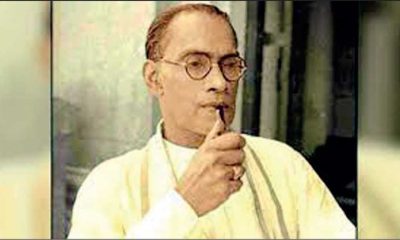
 Opinion5 days ago
Opinion5 days agoCost of ‘Sinhala Only’
-
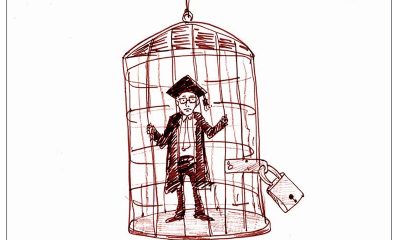
 Features5 days ago
Features5 days agoA conversation that cannot be delayed
-
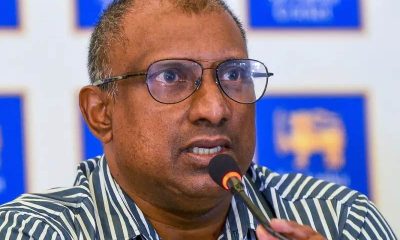
 Sports5 days ago
Sports5 days agoAussies brought the best out of me – Aravinda
-
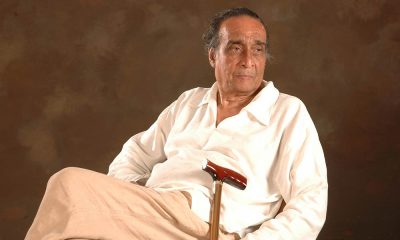
 Features6 days ago
Features6 days agoNihal Fernando: Journey and Legacy
-
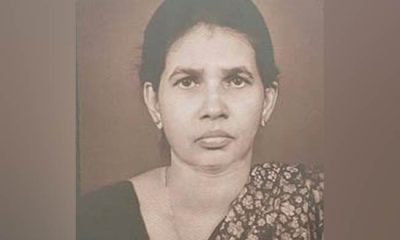
 Opinion6 days ago
Opinion6 days agoNalini S. Kariyawasam – A personification of charming magnanimous lady
-

 Life style6 days ago
Life style6 days agoThe Hidden City in United Kingdom
-

 Features6 days ago
Features6 days agoChaos and Pattern – Memoirs of Godfrey Goonetilleke
-
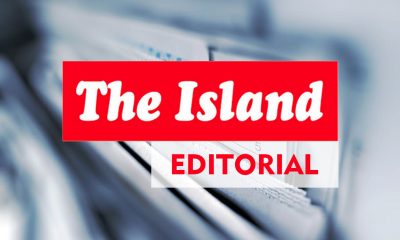
 Editorial5 days ago
Editorial5 days agoOnly delivery can save govts.











